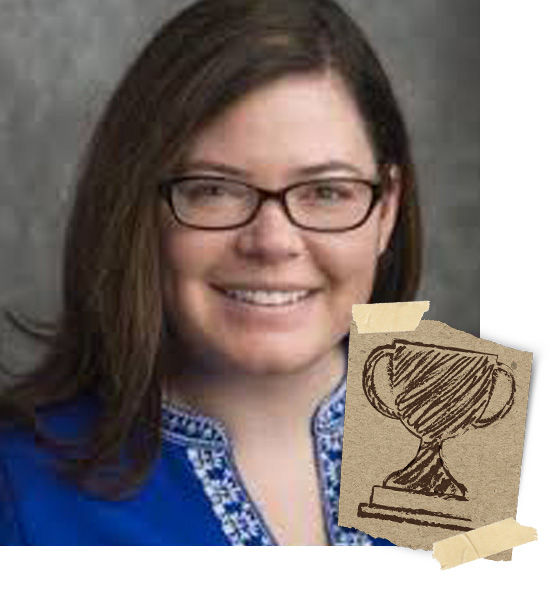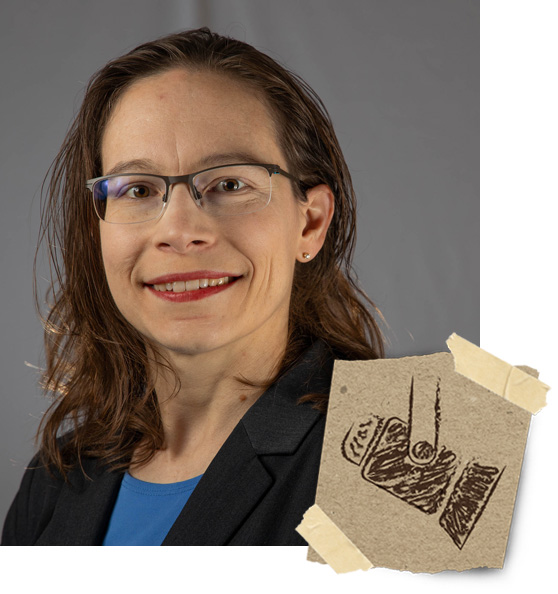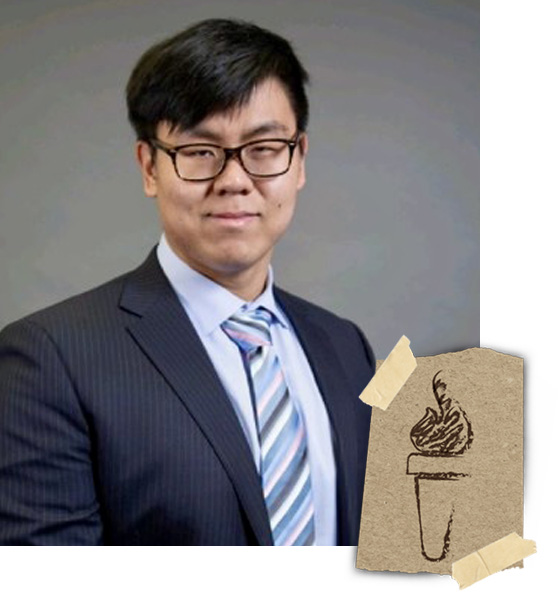Access Champion: Dr. Sarah Dunkel-Jackson
July 18, 2025 - Emily Jodway
 The Americans with Disabilities Act was first signed into law on July 26, 1990. Each year since, on that date, we celebrate Disability Independence Day. The Americans with Disabilities Act was the first law of its kind ensuring equal access and protection against discrimination for individuals with disabilities. Commemorating this event gives us an opportunity to both celebrate the strides we have made in inclusivity as well as acknowledge the ongoing work that needs to be done in order to create a more equitable and accessible society.
The Americans with Disabilities Act was first signed into law on July 26, 1990. Each year since, on that date, we celebrate Disability Independence Day. The Americans with Disabilities Act was the first law of its kind ensuring equal access and protection against discrimination for individuals with disabilities. Commemorating this event gives us an opportunity to both celebrate the strides we have made in inclusivity as well as acknowledge the ongoing work that needs to be done in order to create a more equitable and accessible society.
Dr. Sarah Dunkel-Jackson is a professor in the Department of Human Development and Family Studies (HDFS) and our Access Champion this month. She is also involved with the MSU Research in Autism and Developmental Disabilities (RADD) Lab on campus. Her research focuses on children with disabilities and special education and takes a look at behavioral interventions, social-emotional regulation, verbal behavior and communication, and ways to assess and develop training that support their needs.
Dunkel-Jackson knew as soon as she participated in a high school psychology course and visited a school for children with disabilities as part of the curriculum that this was the area she wanted to study and work in. She earned her bachelor’s degree in psychology from Grand Valley State University and was encouraged to pursue a graduate degree. “I was the first person in my family to go to college, so I didn’t really know what that meant at the time,” she said. But she found several programs in behavioral psychology that were related to supporting individuals with disabilities, and went on to earn both her master’s and doctoral degrees from Southern Illinois University.
Dunkel-Jackson is an avid sports fan and has been involved in both playing and coaching a variety of teams since her own youth. She was introduced to Special Olympics in her community through her cousin, who is a Special Olympics athlete. She also joined the Best Buddies program while in college, where individuals with disabilities are paired with college buddies. Some of Dunkel-Jackson’s favorite activities with her buddy were attending hockey games or playing baseball and golf together.
“Sports have always been an important part of my life,” she explained. “I love sports. Folks with disabilities also want to participate in fun things like sports.”
Throughout college, Dunkel-Jackson continued to participate in research projects both on campus and in the community at local schools, supporting children with disabilities as well as their caretakers. She assisted students with disabilities or brain injuries with making more self-controlled choices in the classroom. At several schools and clinics, she helped develop professional training programs in behavioral interventions and for specific disabilities. “We focused a lot on supporting the staff so that they could better help the students learn and participate,” she said.
After working in Chicago, Ontario, and Michigan for a number of years, both in professional and academic settings, a position opened up at Michigan State in the RADD Lab and HDFS department. “I grew up really close to MSU, in Bath, so I knew growing up that MSU is a place where you want to work,” she said. “Their values are very aligned with mine: supporting communities and having that growth mindset, and doing so in a compassionate and evidence-based way.”
Through the RADD Lab, Dunkel-Jackson and her colleagues are doing research that supports parents, professionals and educators who work with children who have complex communication needs and other disabilities. This can improve both their experiences in the classroom and their overall quality of life. Dunkel-Jackson takes pride in the fact that their work has value and is being applied to directly address needs within the community rather than existing solely in an academic setting.
One project that Dunkel-Jackson is particularly proud of and has received recent recognition for highlights the need for inclusion within sports and gives children with disabilities the opportunity to participate in them with their peers. Their first “Sports Are For Everyone” team was a partnership with a community baseball program and other local coaches and sponsors.
“We were seeing a lot of kids either sign up for baseball and not come back because they were put on a traditional team that was maybe a bit of a struggle for them, or some parents felt embarrassed that their child was not performing at the same level, and some weren’t signing up at all because they did not feel like there was a place for them.”
The goal of this community partnership has been to form leagues specifically for children with unique medical and/or learning needs, and uses a buddy system to aid in skill-building and practice in addition to plenty of fun and games.
“What I love about embedding it into our community program is that it’s just pure inclusion,” Dunkel-Jackson said. “It’s not a separate thing. It’s a part of our whole league.”
Baseball Challenge League, in its 5th season this fall, paved the way for Hockey Challenge Camp, in its third season this August. Both programs are part of a research and outreach partnership with The Arc Livingston and other community partners. After evaluating the success of the baseball program, the group received feedback asking for more sports options. Dunkel-Jackson’s son suggested hockey.
This year’s Hockey Challenge Camp takes place August 4-6 in Brighton, where will players participate in drills and challenges adapted to their skill level by skilled coaches. On August 7, campers visit Munn Ice Arena for Game Night (where all fans are welcome to join for free). Hockey buddies are either MSU students or travel and high school hockey players. In June, Dunkel-Jackson was named the winner of the 2025 Willie O’Ree Community Hero Award, an annual recognition given out by the National Hockey League to an individual who, through hockey, has positively impacted his or her community culture or society. The award was presented to Dunkel-Jackson at game two of the Stanley Cup Finals, and the $25,000 donation to The Arc Livingston will cover costs of adaptive equipment and protective gear for the programs.
“I’ve really appreciated the opportunity to highlight these programs, because these kids deserve it,” Dunkel-Jackson said. “But I’ve also really appreciated the opportunity to share that accessible sports should just be available naturally like this. Any community can get together a group of people who have that knowledge and that passion and build a program like this.”
“Our world is very diverse in so many ways, and part of that diversity is people with different abilities, and when certain groups need programs that are a little more tailored, we can create those in a very accessible and inclusive way. That’s what I’m really proud of with our programs. They bring everybody together, and it’s a community effort, and I really appreciate that my community sees value in creating safe spaces for all athletes.”
For more information on the Hockey Challenge and other camps, the program's website, safechallenge.org, will be going live later this summer.
Honorees’ views are their own and do not necessarily reflect those of the College of Social Science.
Read more:

Access Spotlight
Alumni
Kristen Columbus
Our July Access Spotlight is Kristen Columbus, President and CEO of the Washtenaw Association for Community Advocacy (WACA) and a 2020 graduate of the School of Social Work.

Access Torch
Student
Bobicheng (Beau) Zhang
Beau Zhang is a PhD candidate studying cognitive neuroscience in the psychology department at Michigan State. Beau engages with various organizations on campus supports individuals with disabilities.

Access Matters
We strive to cultivate an inclusive and welcoming college environment that celebrates a diversity of people, ideas, and perspectives.

